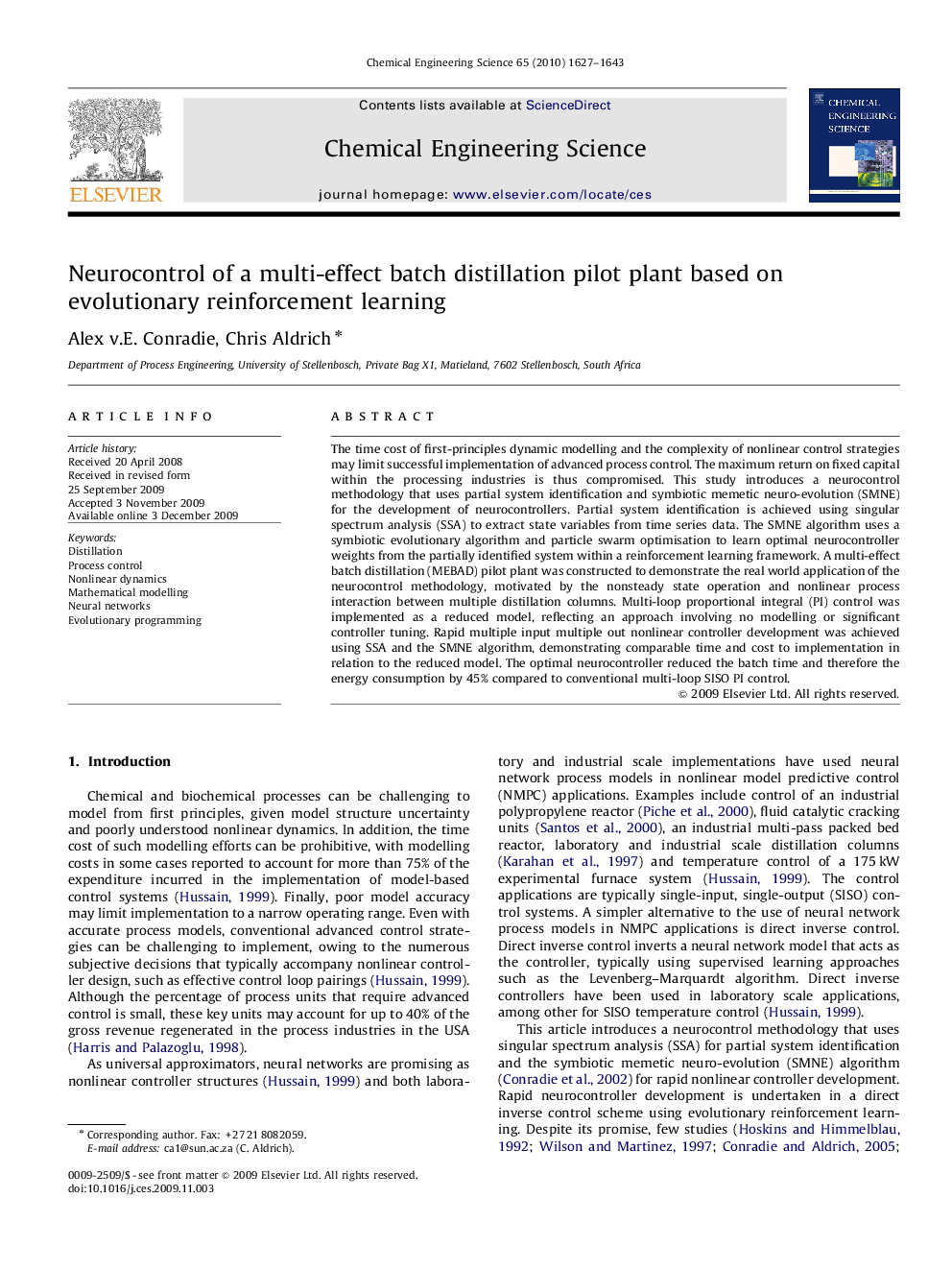| Article ID | Journal | Published Year | Pages | File Type |
|---|---|---|---|---|
| 157579 | Chemical Engineering Science | 2010 | 17 Pages |
The time cost of first-principles dynamic modelling and the complexity of nonlinear control strategies may limit successful implementation of advanced process control. The maximum return on fixed capital within the processing industries is thus compromised. This study introduces a neurocontrol methodology that uses partial system identification and symbiotic memetic neuro-evolution (SMNE) for the development of neurocontrollers. Partial system identification is achieved using singular spectrum analysis (SSA) to extract state variables from time series data. The SMNE algorithm uses a symbiotic evolutionary algorithm and particle swarm optimisation to learn optimal neurocontroller weights from the partially identified system within a reinforcement learning framework. A multi-effect batch distillation (MEBAD) pilot plant was constructed to demonstrate the real world application of the neurocontrol methodology, motivated by the nonsteady state operation and nonlinear process interaction between multiple distillation columns. Multi-loop proportional integral (PI) control was implemented as a reduced model, reflecting an approach involving no modelling or significant controller tuning. Rapid multiple input multiple out nonlinear controller development was achieved using SSA and the SMNE algorithm, demonstrating comparable time and cost to implementation in relation to the reduced model. The optimal neurocontroller reduced the batch time and therefore the energy consumption by 45% compared to conventional multi-loop SISO PI control.
